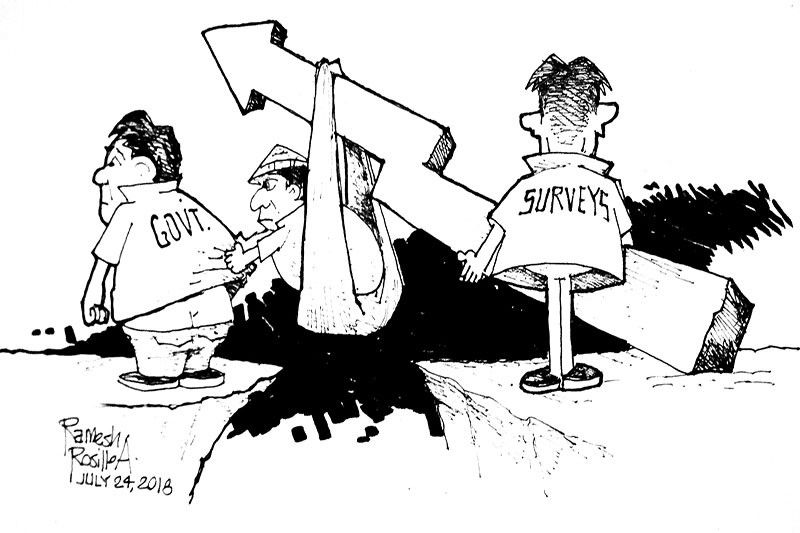EDITORIAL - Poor families

A survey last month by the Social Weather Station revealed that more Filipino families have considered themselves poor. Conducted from June 27 to 30, the survey showed that the number of Filipinos who said their families are poor has increased by 1.3 million, or from 9.8 million to 11.1 million.
Conducted nationwide, the second quarter survey also showed that the monthly income that a family needs for them not to consider themselves poor increased by P2,000 in March, from P13,000 to P15,000.
The SWS survey was done amid rising public complaints over the increasing commodity prices spawned by the implementation of Tax Reform for Acceleration and Inclusion or TRAIN Law, which took effect in January.
So the negative result was actually expected. Given the fact that many in both business and labor sectors have complained about the TRAIN Law’s effects, we can only expect that public grievances against the present situation will only escalate.
It’s the right of the masses to air their grievances against what they think as lapses committed by the Duterte administration. But we have to admit there’s no perfect government. Each has its share of failure in the effort to fully deliver the basic services to the people.
Even in First World countries such as United States and Japan, and those wealthy European states, failure to respond to the basic problem of the people has been the top public concern against the government.
The problem is that it has become a habit for the Filipinos masses to purely rely on the government in their pursuit of ways to escape from poverty. For them, the obligation to provide them with all the resources for them to survive must come from the state.
However, the future will certainly look bleak for country if the masses continue to solely rely on the government for their survival. Every Filipino should do his or her part if we want to attain individual development. We cannot achieve economic prosperity if the masses do not participate in nation-building.
- Latest






















